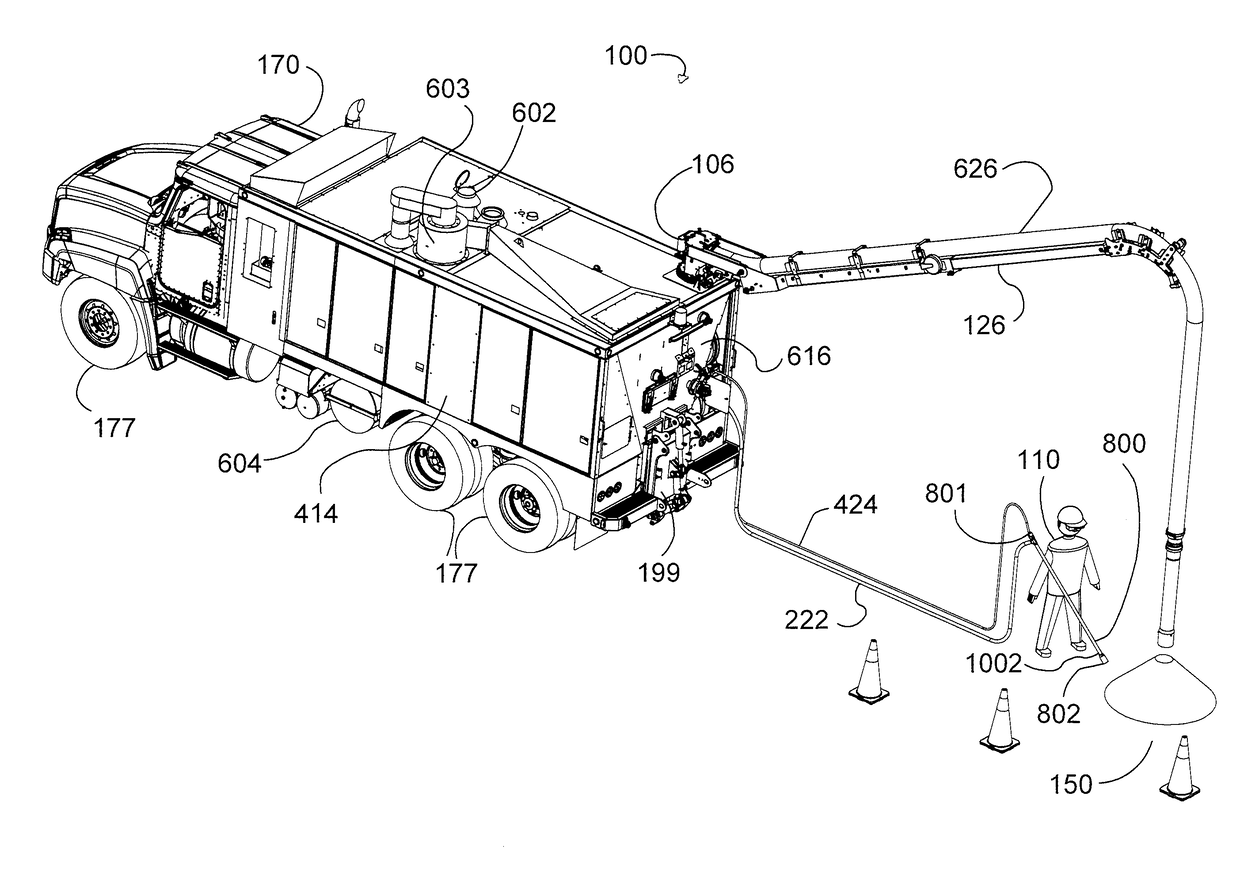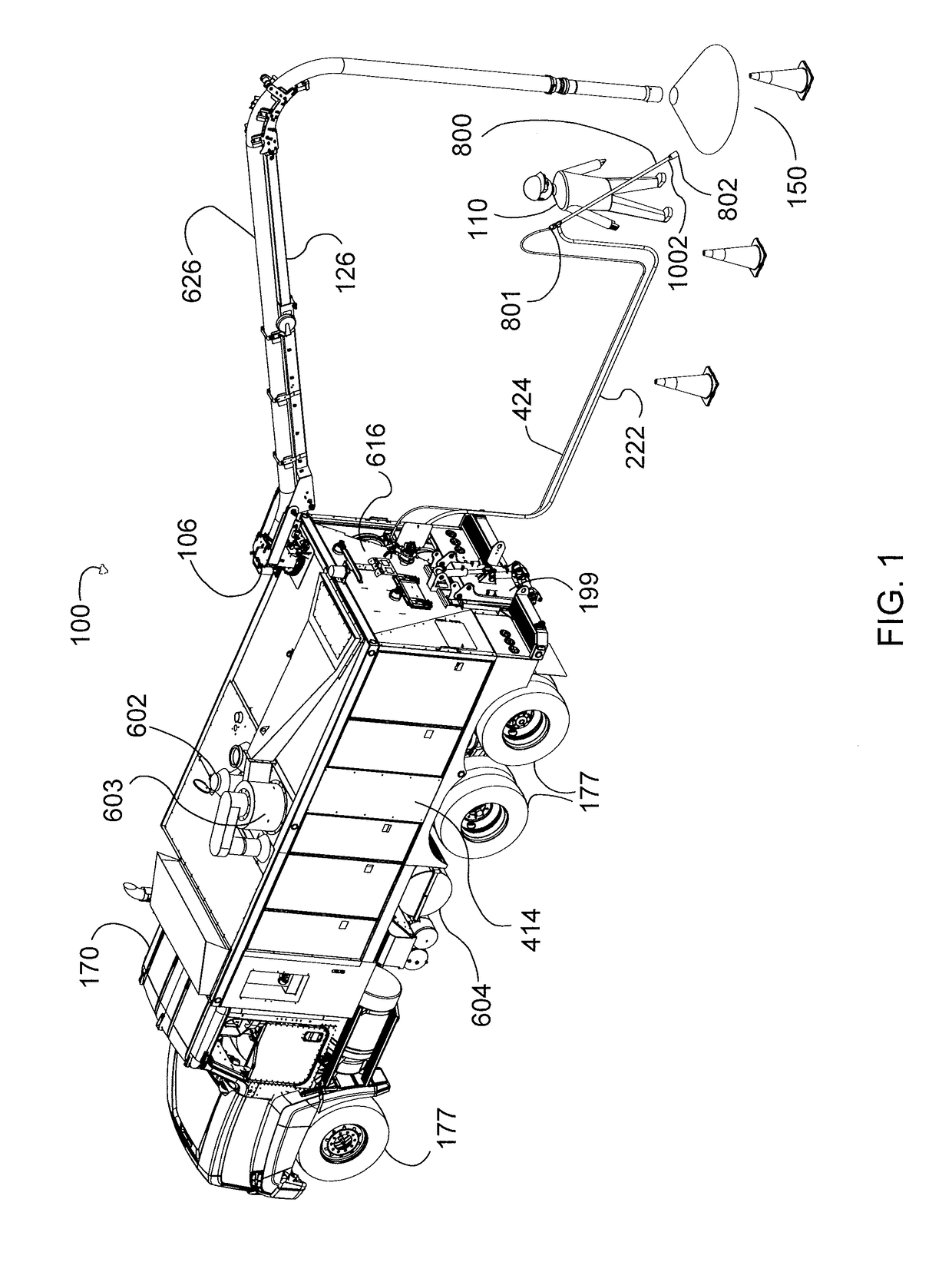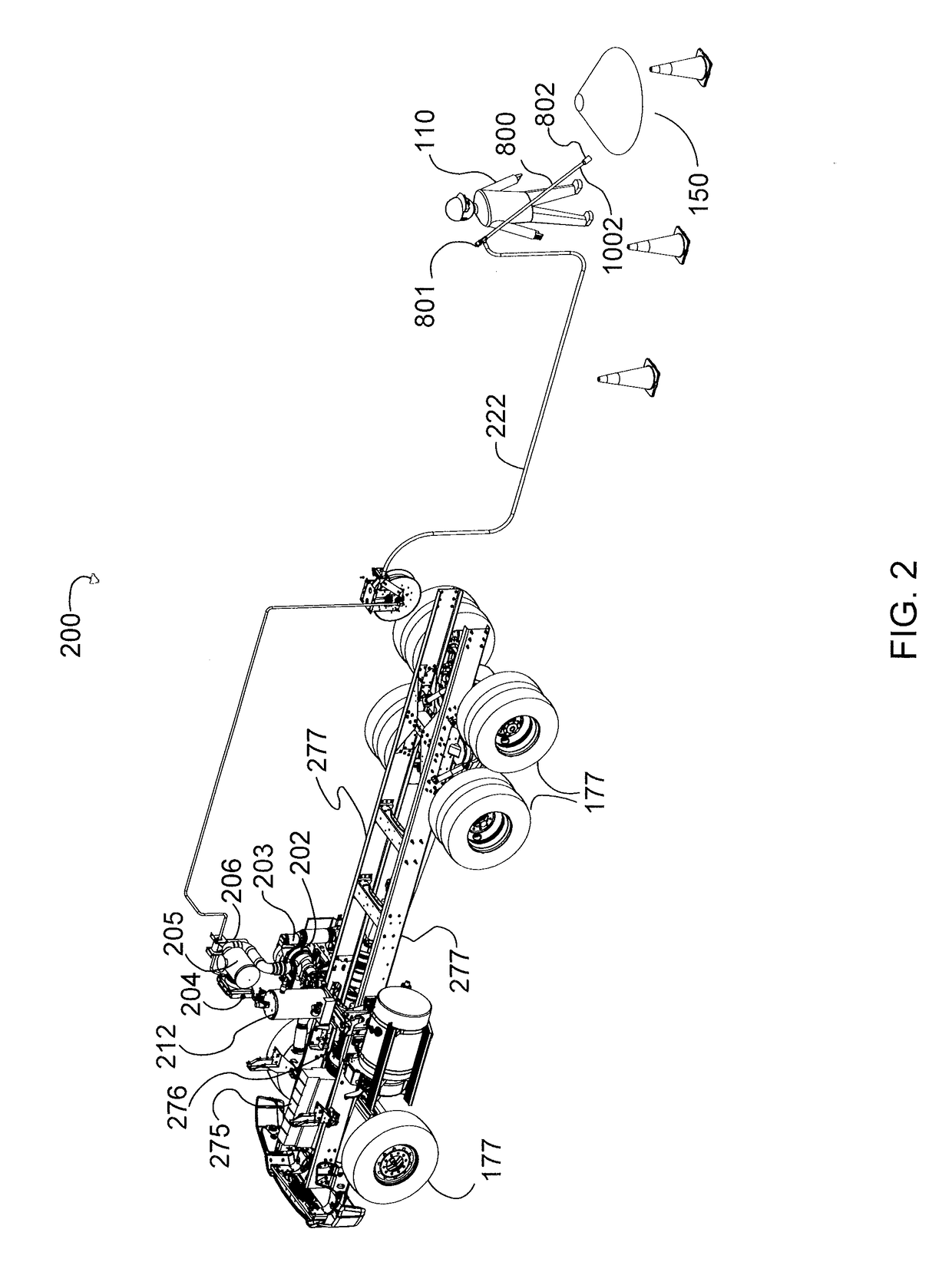Vacuum unit and truck with air and water
a vacuum unit and vacuum technology, applied in mechanical machines/dredgers, soil shifting machines/dredgers, construction, etc., can solve the problems of buried equipment damage, significant detriment, and increased risk of buried utilities or pipelines, so as to improve the service life, facilitate maintenance, and reduce the effect of manufacturing cos
- Summary
- Abstract
- Description
- Claims
- Application Information
AI Technical Summary
Benefits of technology
Problems solved by technology
Method used
Image
Examples
Embodiment Construction
[0011]This invention provides, among other things, vacuum units, systems, and trucks for picking up material, for example, for excavation, for instance. Various embodiments can be used, for example, where removal of excavated material is difficult to accomplish by other methods or where the excavation must take place where damage to equipment, such as buried utilities or pipelines, is a significant risk if alternative methods of excavation are used. Certain embodiments are well suited to use in urban environments, for example, where access to the excavation site is limited.
[0012]Various embodiments (e.g., hydrovac trucks) use water and air to break up material at an excavation site where the material is being picked up by a vacuum unit or system. Further still, some embodiments allow the operator to control the amount of water and air that are being used, for example, with a nozzle that controls the flow of water and air. Even further, a number of embodiments avoid the material beco...
PUM
 Login to View More
Login to View More Abstract
Description
Claims
Application Information
 Login to View More
Login to View More - R&D
- Intellectual Property
- Life Sciences
- Materials
- Tech Scout
- Unparalleled Data Quality
- Higher Quality Content
- 60% Fewer Hallucinations
Browse by: Latest US Patents, China's latest patents, Technical Efficacy Thesaurus, Application Domain, Technology Topic, Popular Technical Reports.
© 2025 PatSnap. All rights reserved.Legal|Privacy policy|Modern Slavery Act Transparency Statement|Sitemap|About US| Contact US: help@patsnap.com



